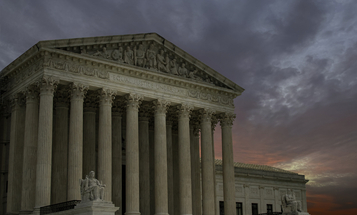
Black History Month: Healing Ourselves and the Generations That Will Follow
We talk about the Black people who overcame oppression but not about the people—overwhelming white and powerful—who created the oppression others had to overcome. This must change.

Black History Month is often a time for re-listening to the soaring oratory of past heroes, dancing to rhythmic music infused with the blues of generations, valorizing our suffering and lionizing our idols, celebrating our victories and exclaiming, “How far we’ve come!” Black History Month is often a respite from the reality of the day-to-day world with its day-to-day racism, a glimpse of what our American Dream could be and a chance to celebrate our perseverance.
But this year, my eight-year-old daughter has been stymying any such celebration of our resilience. As one of few Black children in a classroom exploring the kids’ family histories, she is anxious about being distinguished by having had ancestors who were enslaved. So this year, the stories of resilience and resistance are rolling off of her back. And, I’m pretty sure it is because of the grammatical magic of passive construction, reflecting a willful erasure in the stories we enjoy during Black History Month.
The stories we tell are about Black people who were enslaved by a system of slavery. Black people who overcame a practice of segregation. Black people who made music responding to or made millions despite the constraints of an oppressive situation.
But what’s lost in these accounts are the stories of the people who made and make the decisions that create the oppressive circumstances that Black people have had to overcome. The economically and politically powerful—overwhelmingly white—few have made (or caused to be made) decisions and taken (or caused to be taken) actions that have created the systems, policies, and practices that drive racist and white supremacist ideas. And, these ideas further concentrate wealth and power into their hands.
I have had conversations with white parents who worry that being too explicit about who was enslaving, segregating, and oppressing would be too heavy a burden for their children’s shoulders. So, while they are feeling enriched by their children’s exposure to Black history, my daughter is feeling beaten down by that protective erasure of white history.
And, that is why the TV show black-ish has become so important in my house recently. Almost every episode features a quick, self-conscious history of race and racism in the United States and the ramifications of that history in the present-day world. Grounded in the sit-com format, it gives my kids passage through some of the painfulness of the Black experience with an explanation of the deliberate decisions of powerful and wealthy white people that created that pain, while also inhabiting the joy of the experience created by Black people. So, even as my daughter fretted about walking into her classroom as the descendant of slaves, she and my son watched the “Juneteenth” episode of black-ish five times in one day over winter break.
Without our explicitly describing the forces, decisions, and people stripping freedom, access, and wealth from Black people, the story is incomplete. We need to tell the whole story, not only to repair the policies and practices that drive racism and not only to improve our analysis of where we sit in history. It turns out that we need to tell the whole story in order to heal ourselves and the generations that will follow us.
About the Series
Since 1976, the United States has designated February as Black History Month to honor the often overlooked achievements of black Americans throughout the country’s history. Demos is honoring Black History Month by highlighting reflections from some of our staff. We welcome you to join the conversation by sharing your thoughts with us on social media using #blackhistorymonth.



